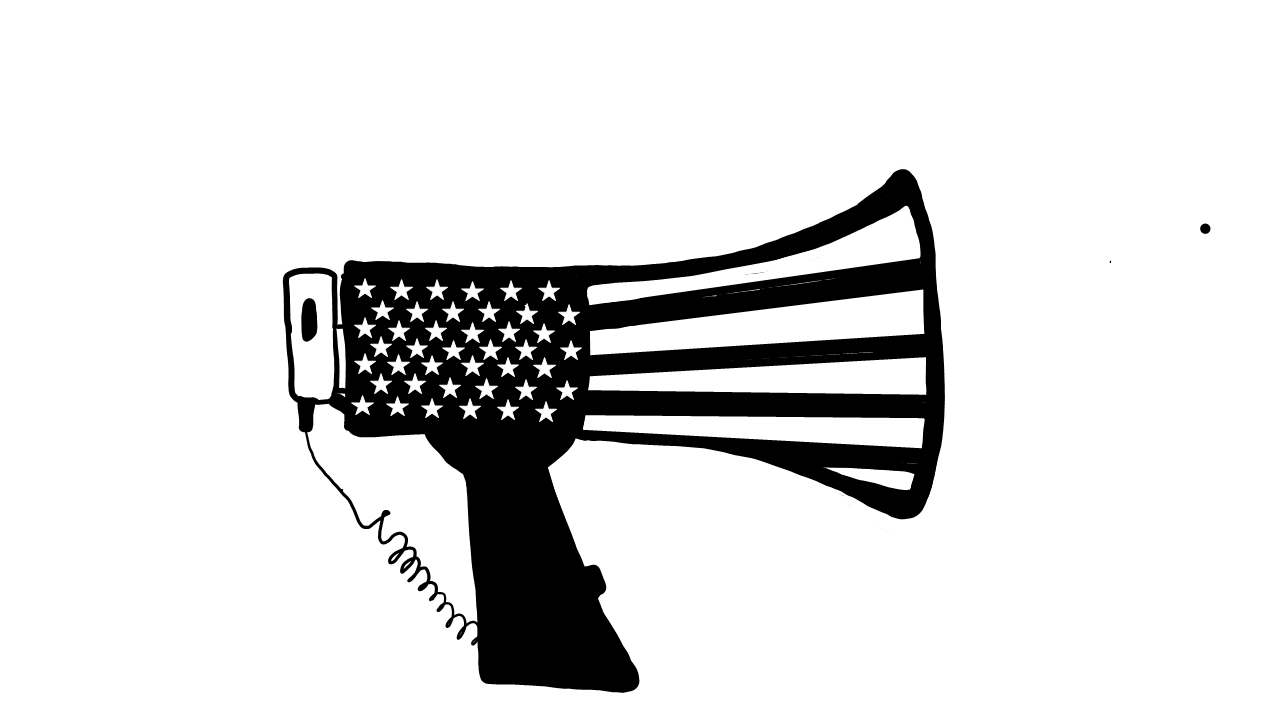Our school would be better off without propaganda
March, 2022
Re-entering school last year felt slightly eerie for almost every PHS student. It was undoubtedly strange to experience all of the quirks that in-person education brings — picking up lunch in the cafeteria, rushing to get to our classes on time, and, of course, listening to the Pledge of Allegiance every morning.
When PHS Building Monitor Scott Goldsmith comes on the loudspeaker every morning with the Pledge, a peculiar mix of reactions can be seen among students in the hallway. Some stand still, desperately glancing around for the nearest American flag to salute, and some try to ignore the Pledge altogether, walking through the halls briskly, gazes fixated on the floor beneath them. The pledge had once been so deeply ingrained in students’ minds that no one stopped to think about the meaning of the words being recited. But when students heard the Pledge ringing in their ears for the first time in almost two years this September, many of them began to question it. The Pledge, many students realized, is deeply problematic.
The Pledge’s roots are fairly innocuous — its original prose, “I Pledge Allegiance to my Flag and the Republic for which it stands, one nation, indivisible, with liberty and justice for all,” was written in August 1892 by a minister named Francis Bellamy. In 1932, the words “the Flag of the United States of America” were added. Finally, and most worryingly, U.S. President Dwight Eisenhower added the words “under God” to the Pledge in 1954, in order to counter a growing “Communist threat.” This addition undeniably associates religion with patriotism, which is dangerous. One of Eisenhower’s close friends, Reverend George Docherty, advocated strongly for the addition of the phrase, proclaiming in a sermon Eisenhower attended that “if you deny the Christian ethic, you fall short of the American ideal of life” . This sentiment is problematic, especially when it’s so integral to a pledge that every public school in New Jersey has to recite. Being patriotic should not be tied to one single religion. Even though the Pledge never directly mentions the Christian God (although it’s heavily implied), the phrasing “under God” excludes people who follow polytheistic faiths, as well as those who simply aren’t religious. By claiming that “liberty” and “justice” are ideals that can only be achieved under the watchful eye of God, the pledge tells non-religious students that these ideals are inaccessible to them.
By forcing students to listen to the Pledge of Allegiance, New Jersey’s legislation is in violation of one of the pillars that our country is built on: the separation of church and state. Even the daughter of Francis Bellamy, the minister who wrote the initial pledge, was unhappy about the injection of God into his original sentence.
The Pledge of Allegiance is also a representation of the unnecessary amount of nationalism that surrounds the U.S. educational system as a whole. Section 18A:36–3 of New Jersey’s 2013 Revised Statutes requires U.S. flags in every classroom and auditorium in the state. This can lead many students to equivocate our flag with freedom and justice, which couldn’t be further from the truth. The United States is a nation built on the backs of enslaved peoples, a nation whose ex-president called Putin’s moves in Ukraine “genius,” and a nation where imperialism and needless proxy wars have often dominated our foreign policy. Often, our country’s messaging to the public is anything but free and just. During the Second Red Scare, when the United States was hysterical about the influx of communism across the globe, we published huge amounts of political propaganda and investigated innocent citizens that were suspected of being communists. Since America fails to hold up to traditionally “American” ideals, the flag does not represent them. By pledging allegiance to the flag, instead of promising to uphold freedom and justice, one is promising to uphold the United States’ superiority to other countries. Propaganda does not belong in our school.
PHS is better off without nationalism. The Pledge of Allegiance, where we praise America for being a country of liberty thanks to us being “under God,” is archaic and doesn’t belong in our school district. But, the state of New Jersey mandates that we recite the pledge every morning. It may seem that PHS students and staff are powerless against this infringement upon our rights. But, there can only be hope for change if we raise our voices to condemn the mandate. If we take meaningful action against this fundamentally flawed practice, it has the power to make the beginning of our school days a little less uncomfortable.